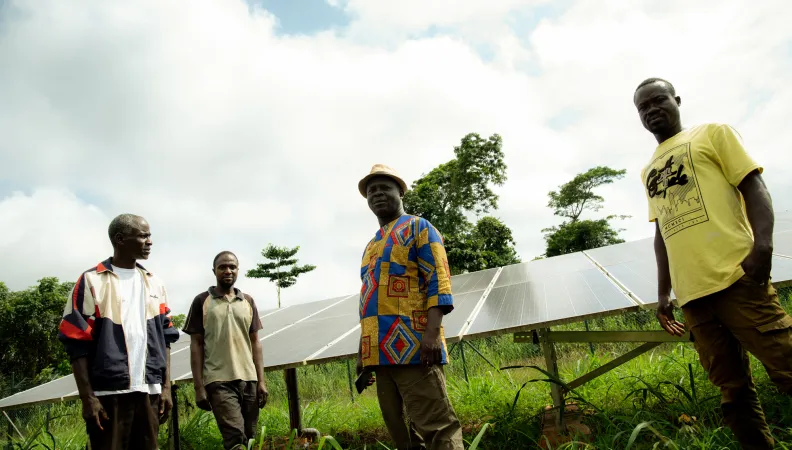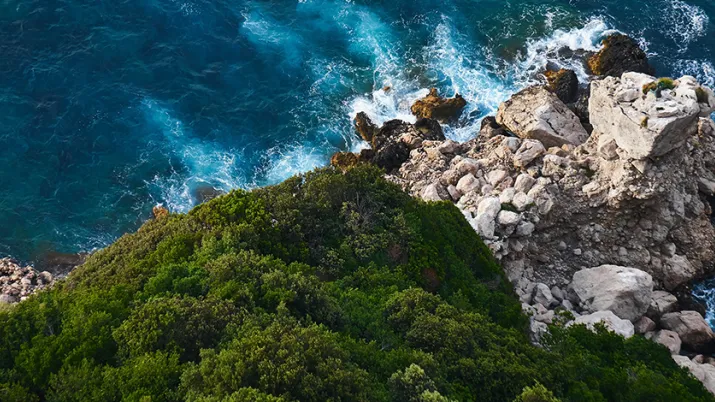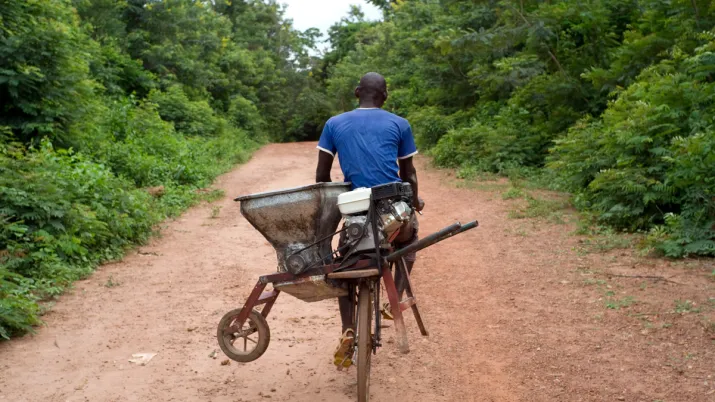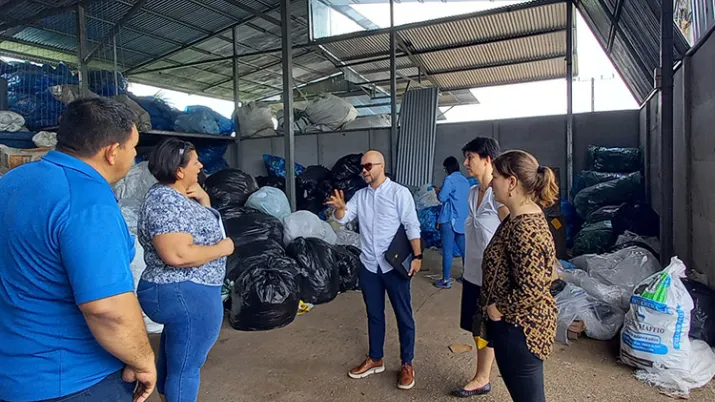Share the page
Our work in energy & sustainable development

Energy consumption and production continue to rise globally, generating high costs for businesses, citizens, and states alike. Energy crises have highlighted the vulnerabilities of energy systems in the face of risks such as fluctuating energy prices, conflicts, climate-related events and technical failures.
The economic importance of energy infrastructure and value chains, the variety of technologies and organisational models in use, the public and private investment involved, and the jobs these represent make decisions about the energy sector complex. Put simply, any decision about energy has long-term technical and socio-economic implications.
Our agency’s role in the energy sector is to question and reframe existing energy systems, creating the conditions for open dialogue on possible alternatives with all stakeholders. As a hub of European, local and international expertise, we operate in many regions, with eight active projects across 58 countries in 2025.
800 million people worldwide lack access to electricity
800 million people worldwide lack access to electricity, half of whom live in Sub-Saharan Africa. These populations often rely on firewood, charcoal or expensive, polluting generators for cooking, heating and lighting in homes and businesses.
(Source: AFD)
Our strategic priorities
Energy is a fundamental issue for development and poverty reduction. Yet at the same time, the energy sector is the primary contributor to greenhouse gas emissions, making decarbonisation and energy security key to climate resilience.
Each country’s energy system is shaped by historical choices, compromises, and power dynamics between local, national, and international stakeholders. As energy policy is central to achieving the Sustainable Development Goals and the Paris Agreement, our ambition is to support societal transformations worldwide by promoting universal access to efficient, decarbonised energy services.
As France’s public agency for international technical cooperation projects, we support both public and private stakeholders with their energy transition and universal access goals. Our work in this sector centres around three main pillars:
- Develop renewable energy and energy efficiency: We support institutions in integrating renewable energy and efficiency into public policies and regulatory frameworks; we aid national electricity companies in integrating renewables into the grid; and advise regional/international energy organisations on strategy and programme development.
- Ensure universal access to energy: We support the creation of institutional frameworks and public policies that promote rural electrification and energy access for all; we assist national and local project owners in sizing, building and managing renewable energy infrastructure; and we link energy access with local economic development that benefits local populations.
- Promote green investments: We support private banks and public stakeholders in deploying financing tools for investments in energy efficiency, renewable energy and access to energy; and we identify projects in these areas that are likely to yield a return on investment, providing technical and financial feasibility assessments, project preparation and business coaching.
Our framework for action
Energy transition is one of the main avenues for reducing greenhouse gas emissions. Our work aligns with priorities set during the Conferences of the Parties (COP) held by the United Nations Framework Convention for Climate Change (UNFCCC).
There are other multilateral commitments that set specific targets for energy transition. One example, the March 2024 Chaillot Declaration coordinated by the United Nations Environment Programme (UNEP) and the French government, gathered 70 countries around a common goal of carbon-neutral buildings supported by financial and regulatory incentives.
 © François Lenoir / Expertise France
© François Lenoir / Expertise France
We support the internal and external political and financial commitments of the European Union to climate action, contributing to a favourable multilateral framework. France also aligns its development policy with these goals, enshrining decarbonisation as one of its strategic priorities for energy transition.
At the June 2023 Summit for a New Global Financing Pact, formalised through the Paris Pact for People and the Planet (4P), France and its partners reaffirmed that no country should have to choose between poverty reduction and planetary preservation. They pledged support for sustainable infrastructure that is both durable and responsive to environmental and social risks.
The Presidential Council for Development has prioritised coal phase-out and renewable energy financing in developing and emerging countries to limit global warming to 1.5°C.
Our services in this area
Our support for the energy transition of partner countries is based on three core areas:
- Sharing experience and decision-making tools through regional cooperation, grid development and modernisation, renewable energy promotion, boosting of energy efficiency, study visits that centre around a specific issue, as well as the initiation and coordination of impact assessments or technical and financial feasibility studies regarding investments and reforms.
- Co-design and implementation of innovative solutions by supporting local authorities in energy/climate planning, implementing pilot projects to test innovative solutions, backing private or civil society initiatives that reinforce public policy, and launching and monitoring calls for projects.
- Supporting long-term energy choices by supporting market and tariff reforms (or other types of loans); developing decarbonisation and just transition roadmaps; setting up and running national, regional or global exchange platforms; coordinating operator and donor initiatives; facilitating policy dialogue; raising awareness among decision-makers and the general public; supporting communication strategies; and updating legal and regulatory frameworks.
Our projects
Key figures
- 8 ongoing projects
- 58 countries of operation
- €16.3 million in energy projects in 2023



